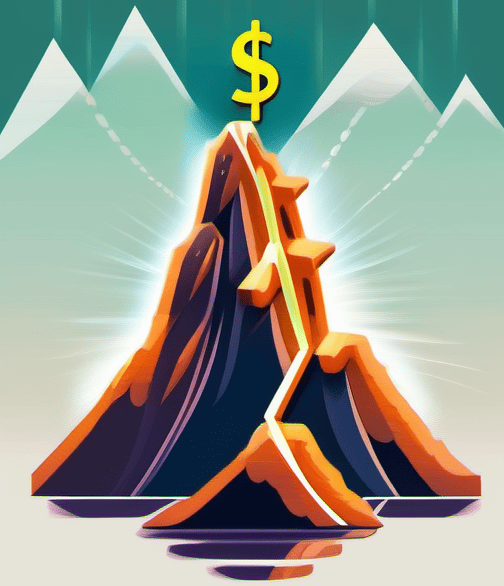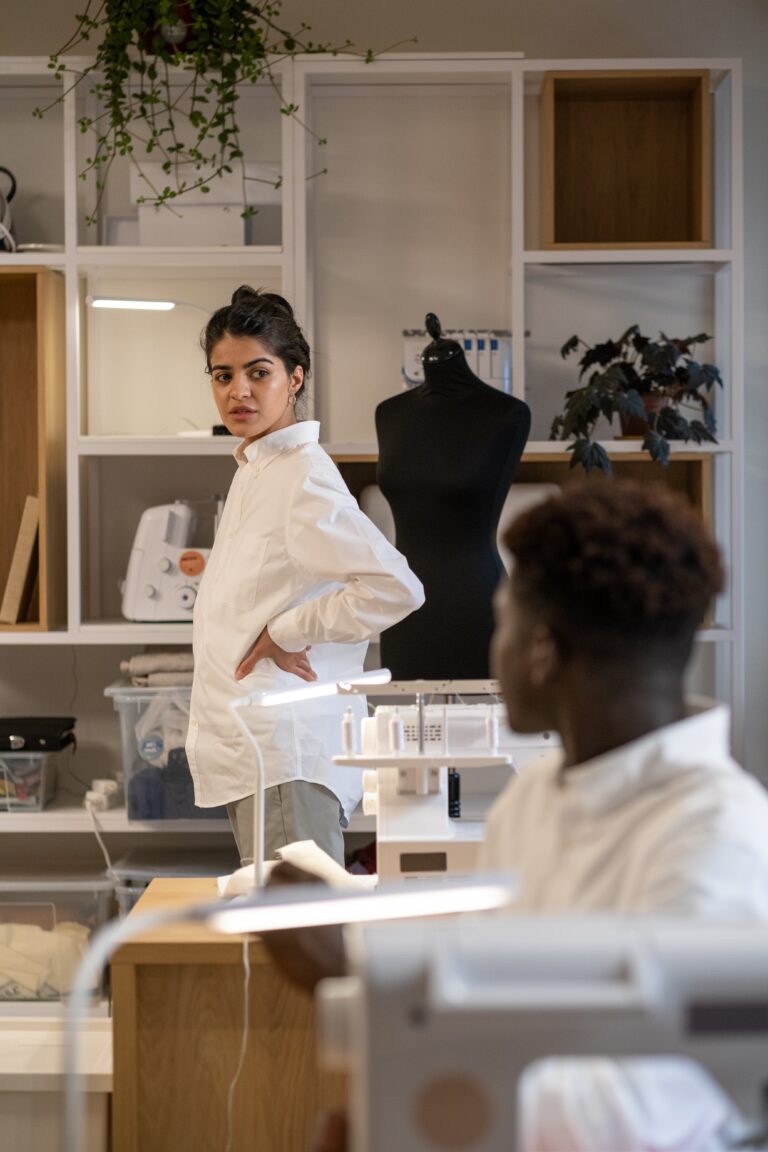The Future Of Worl
Imagine a world that’s constantly evolving, with advancements shaping our daily lives in ways we’ve never thought possible. In my latest article, “The Future Of Worl,” I explore the dynamic trajectory of our planet’s future. From pioneering technologies to new societal norms, I’m eager to share with you the thrilling prospects that could redefine our existence. Join me as I unveil the intriguing possibilities waiting just over the horizon, a glimpse into the transformative journey that the future holds for all of us.
The Future of Work
The landscape of work is evolving at an unprecedented pace, largely fueled by technological advancements and globalization. As someone with a keen interest in how these changes impact our professional and personal lives, let’s dive into the multifaceted dimensions of the future of work.

The Rise of Remote Work
Implications for Urban Planning
As I’ve observed, the rise of remote work is altering the fabric of urban planning. Cities, once the epicenters of employment opportunities, are now adapting to a workforce that no longer needs to commute daily. This could mean a shift away from centralized business districts to more residential-focused development, with greater emphasis on creating livable, walkable communities that accommodate home offices and co-working spaces.
Impact on Work-Life Balance
Remote work has undoubtedly reshaped my work-life balance. Without the need for commuting, I’ve found extra hours in the day for personal pursuits and family time. However, it also blurs the lines between work and home, sometimes making it difficult to ‘switch off’ and leading to a different kind of stress that we must learn to manage.
Global Collaboration and Time Zone Logistics
Working remotely has enabled me to collaborate with colleagues around the globe. However, this global collaboration brings its own challenges, particularly in managing different time zones. It requires flexibility and careful planning to schedule meetings and deadlines that accommodate everyone.
Advancements in Communication Technology
The remote work boom could not have occurred without advancements in communication technology. Tools like video conferencing, collaborative software, and cloud-based platforms have become vital. I’ve come to rely on these technologies to stay connected, productive, and maintain a sense of workplace community from afar.
Automation and the Labor Market
Job Displacement Concerns
Many, including myself, are concerned about the potential job displacement caused by automation. As machines and software algorithms become capable of performing tasks historically done by humans, there’s widespread anxiety over the future of certain jobs, particularly in manufacturing and administrative roles.
New Job Creation
Despite concerns, I am also aware that automation can lead to new job creation. As history has shown with previous technological revolutions, new sectors will emerge, and with them, new employment opportunities. Keeping an optimistic outlook, I’m curious about the roles that have yet to be imagined.
The Changing Landscape of Skills and Education
Automation is shifting the landscape of required skills and education. As repetitive tasks are automated, there’s an increased need for skills in technology, problem-solving, and creativity. Continuous learning and adaptation are becoming the new norm for myself and my fellow professionals.
Universal Basic Income and Social Safety Nets
The conversation around Universal Basic Income (UBI) and social safety nets has gained traction with the rise of automation. I’m intrigued by the prospect of UBI providing a safety net to those disrupted by technological changes, ensuring that all members of society can benefit from the wealth that automation may generate.
Artificial Intelligence in the Workplace
AI-enhanced Decision Making
AI-enhanced decision-making tools are becoming integral to my work. They assist in analyzing large datasets, predicting trends, and making informed decisions more rapidly than ever before. This addition to the workplace can lead to better outcomes and a competitive edge.
Ethical Considerations and Bias Mitigation
With the adoption of AI, I am conscious of the ethical considerations and the need for bias mitigation. There’s a responsibility to ensure that AI systems are fair, transparent, and respectful of privacy. As AI becomes more prevalent in my daily tasks, I must remain vigilant against perpetuating existing biases.
Human-AI Collaboration
The future of work features a close collaboration between humans and AI. I envision a synergetic relationship where AI handles the data-intensive aspects of jobs while I focus on areas requiring human intuition and emotional intelligence. This partnership could elevate our potential to new heights.
Regulation and Oversight
As AI becomes increasingly embedded in our professional lives, the need for regulation and oversight becomes paramount. I support the idea of appropriate checks and balances that guide the ethical development and deployment of AI, protecting both workers and businesses.
The Gig Economy and Freelancing
Regulatory Challenges and Worker Rights
The gig economy presents regulatory challenges, particularly in terms of worker rights. As an independent contractor, I’m aware that traditional employment protections don’t always apply, raising concerns about job security, benefits, and labor standards that need to be addressed.
Shifts in Company Organizational Structures
Companies are shifting their organizational structures to accommodate freelancers and gig workers. I’ve noticed a more fluid approach to hiring, where businesses tap into a global pool of independent talent for short-term, project-based work. This can lead to greater flexibility but also necessitates a rethinking of team dynamics and loyalty.
Economic Impact and Sustainability
The gig economy’s economic impact and sustainability are subjects of debate. On one hand, it drives entrepreneurship and market efficiency; on the other, it can lead to income volatility for workers. Personally, I’m curious about how sustainable this model is in the long term, both for individuals and the economy as a whole.
Technology Platforms Enabling Gig Work
Technology platforms have been instrumental in my experience as a freelancer. They’ve made it possible to connect with clients, manage projects, and receive payments. These platforms are the backbone of the gig economy, and their influence cannot be overstated.

Sustainability and Green Jobs
The Growth of Environmental Industries
The growth of environmental industries is promising. I’m excited about the potential for meaningful work that not only provides a livelihood but also contributes to the well-being of our planet. Green jobs in renewable energy, conservation, and sustainability are on the rise, creating new career paths that I and many others find inspiring.
Corporate Responsibility and Eco-friendly Practices
Corporate responsibility and eco-friendly practices are becoming a priority for businesses, driven by both consumer demand and the moral imperative to protect the environment. I’ve taken notice of companies that invest in sustainable practices, and it’s heartening to see the corporate world taking steps to reduce its carbon footprint.
Government Policies and Incentives
Government policies and incentives play a crucial role in promoting environmental jobs and practices. I believe that supportive legislation can spark innovation and drive industry growth, while also encouraging companies and individuals to adopt more eco-friendly approaches.
Education for Sustainability
Education for sustainability is essential. Learning about environmental issues and sustainable practices informs my daily choices and career decisions. It’s crucial to integrate sustainability education at all levels to prepare future generations for the challenges of a changing world.
Technological Reskilling and Upskilling
The Role of Continuous Learning in Career Longevity
In my career, I’ve embraced the fact that continuous learning is no longer optional but essential for longevity. The rapidly changing technological landscape requires me and my colleagues to regularly update our skills to remain relevant and competitive.
Private-Public Partnerships in Education
Private-public partnerships in education are an effective way to bridge the skills gap. By collaborating, these sectors can create programs and initiatives that specifically address the skills needed for the jobs of tomorrow, which I find to be a proactive solution to the challenges we face.
Impact on Higher Education and Vocational Training
I’ve observed the impact of technology on higher education and vocational training, noting a shift towards more flexible, skill-based learning. Traditional degrees are being supplemented with shorter, more focused programs that offer practical skills aligned with industry needs.
Personalized Learning through AI
The advent of AI has paved the way for personalized learning, tailored to the unique needs and pace of each individual. I am intrigued by how this technology can curate a learning path that suits my style and augments my career development effectively.

Virtual and Augmented Reality in Work Spaces
Immersive Training and Simulations
Virtual and Augmented Reality (VR/AR) are revolutionizing training and simulations in the workplace. Immersive technologies provide me with hands-on experience in a safe, controlled environment, enhancing my learning and preparation for real-world situations.
Enhanced Design and Prototyping
In my experience, VR/AR has significantly enhanced design and prototyping processes. These tools allow for rapid iteration and a tangible sense of the final product, which assists in decision-making and development, and streamlines the creative process.
Remote Assistance and Customer Experience
VR/AR technologies also have the potential to transform remote assistance and customer experience. By utilizing these tools, I can provide real-time, interactive support or create engaging customer experiences that transcend physical boundaries.
Challenges in Adoption and Accessibility
Despite the promise of VR/AR, challenges in adoption and accessibility remain. Cost, complexity, and a lack of standardization can be barriers. For these technologies to reach their full potential, they must become more user-friendly and widely accessible.
Mental Health and Employee Wellness
The Stigma around Workplace Mental Health
The stigma surrounding workplace mental health is gradually diminishing. I am encouraged by this change, recognizing the importance of addressing mental well-being as part of overall employee health. Open discussions and support systems are key to progress.
Corporate Wellness Programs
Corporate wellness programs have gained popularity, and I find them to be a valuable component of the modern workplace. They offer resources and initiatives to support the physical and mental health of employees, which in turn can enhance productivity and satisfaction.
Impact of Work Environment on Health
The work environment has a profound impact on health. As someone who has worked in various settings, I can attest to the difference a positive, supportive atmosphere makes. It’s essential for employers to create environments that promote well-being and prevent burnout.
Use of Technology in Mental Health Support
Technology offers innovative ways to support mental health in the workplace, such as apps for meditation, counseling services, and stress management tools. I appreciate the convenience and anonymity these tools provide, making it easier for me and others to seek help.
Diversity, Equity, and Inclusion
Measuring and Enhancing Workplace Diversity
Measuring and enhancing workplace diversity is crucial. I believe that a diverse workforce brings a richness of perspectives that can lead to innovation and growth. It’s important for organizations to track diversity metrics and implement strategies to improve inclusivity.
Inclusive Policies and Their Impact
Inclusive policies positively impact the workplace by creating a sense of belonging for everyone. I’ve noticed that when companies prioritize equity and create environments where diverse voices are heard and valued, employee engagement and performance improve.
Gender Equity in Leadership and Pay
Gender equity in leadership and pay is an area that still requires attention. I advocate for efforts to close the gender pay gap and increase female representation in leadership roles. Equality in these areas can benefit all employees, regardless of gender.
Cultural Competence in Global Teams
Cultural competence is essential in global teams. As a member of such a team, I’ve learned the importance of understanding and respecting cultural differences. It’s about creating an environment where everyone can contribute and thrive, and that requires continuous learning and empathy.
Global Labor Market and Economy Shifts
Economic Globalization and Workforce Mobility
Economic globalization and workforce mobility are reshaping the labor market. I’ve seen how advancements in technology and transportation have made it easier for professionals like myself to work from virtually anywhere, leading to a more interconnected and competitive global economy.
International Collaboration and Competition
International collaboration and competition are side effects of a global labor market. On one hand, it encourages cross-border partnerships and learning; on the other, it increases competition for jobs and resources. Navigating this balance is a new reality for workers worldwide.
Impact of Political Changes on Work
Political changes have a significant impact on work. Policies on trade, immigration, and regulation can affect employment prospects and business operations. As an active participant in the labor market, I’m continually aware of how these changes can shape my career opportunities.
Forecasting the Future: Economic Models and Predictions
Forecasting the future with economic models and predictions is fraught with uncertainties, but it’s a fascinating exercise. By modeling various scenarios, economists can provide insights that help governments, businesses, and individuals like myself to prepare and adapt to future changes.
The future of work is a complex, evolving narrative that presents challenges and opportunities. I am both a witness and a participant in this unfolding story, eager to contribute positively and navigate the changes with resilience and foresight. It’s a journey that requires adaptability, continuous learning, and a proactive approach to the shifting landscapes of professional life.







